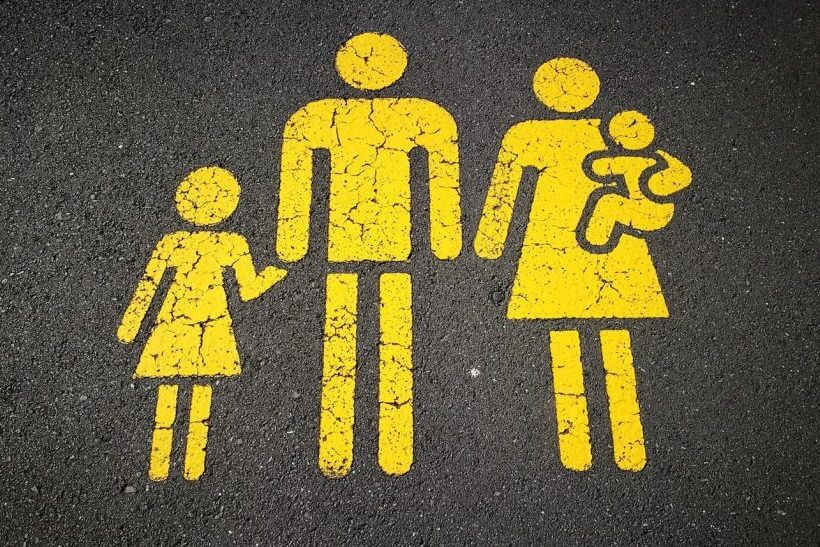Okay, answer me this.
When we go to church, one of the themes we hear from pulpits over and over again is how we live in a culture that doesn’t respect family values. But what exactly are family values? And what does it mean for a single person to support family values?
Our church values hope, life, reconciliation, authentic encounter, cultivating spirituality, comforting the afflicted, afflicting the comfortable, and hearts being renewed, just to name a few, and gives us rituals around these themes. These gifts are meant to bring us closer to our Triune God, who is the image of the family.
Family values are the beliefs, traditions, and stories that we embrace to help us build shared meaning within our families and culture as a whole. As Pope John Paul II said during a homily in Perth, Australia, “As the family goes, so goes the nation, and so goes the whole world in which we live.”
What does this mean for us individuals who have not started our own families?
The key is to be intentional about our life choices, specifically how we treat ourselves, our neighbors, and live out our faith. We do this by…
- Embracing our wounds and seeking reconciliation (with others, God, and ourselves).
- Getting outside of ourselves by sharing who we are with others (through vulnerability and healthy boundaries).
- Practicing our faith and trusting God’s plan for our lives (by having a consistent prayer life and embracing the Sacraments).
Acknowledging that we haven’t been living in accord with our values can be as simple as saying “I am out of balance” or “I need to go to Confession and begin again.” And that’s okay. This process is called metanoia, which is a fancy Greek word for having an internal conversion.
Habits take time to build. And we discover more about who we are in the process. Beginning now and practicing living out of our values while we are single can only help us once we are married.
So how does the individual go about living the values I mentioned above?
We live within a certain type of culture that may or may not support these values.
Organizational development pioneers Terrence Deal and Allan Kennedy define culture as “the way we do things around here.” We need to look at the way we do things in our lives at work, in church, and with our friendships.
In her book Daring Greatly, shame and vulnerability researcher Brené Brown says “we have to hold our aspirational values up against what I call our practical values—how we actually live, feel, behave, and think.” She asks ten questions that, when answered honestly, can help us see exactly what our values hold.
- What behaviors are rewarded/ punished?
- Where and how are people actually spending their resources (time, money, attention)?
- What rules and expectations are followed, enforced, and ignored?
- Do people feel safe and supported talking about how they feel and asking for what they need?
- What are the sacred cows? Who is most likely to tip them? Who stands the cows back up?
- What stories are legend and what values do they convey?
- What happens when someone fails, disappoints, or makes a mistake?
- How is vulnerability (uncertainty, risk, and emotional exposure) perceived?
- How prevalent are shame and blame and are they showing up?
- What’s the collective tolerance for discomfort? Is the discomfort of learning, trying new things, and giving and receiving feedback normalized, or is there a high premium on comfort (and how does that look)?
These questions give us the opportunity to sit down and look at our lives long and hard.
They give us a map of where we are and where we want to go. If we want to build strong families, either as parents, aunts and uncles, or supportive friends, then we need to intentionally practice our values and live in alignment with them. We need to walk the talk, even (or especially) if it is countercultural to society at large.
And that could look something like this...
To embrace our wounds is to acknowledge them and admit they are real. It is only when we have the humility to see our hearts as they truly are, even the dark places we don’t like to admit, that we have the ability to bring them forward into the light.
Being brave enough to share ourselves and our gifts with others means not cowering in the shadows because someone else can do this project better, nor does it mean seeking attention and glory for its own sake. It means knowing the difference between who you are and what you have to offer, and believing you are worthy of love.
It is deceptively simple to say “have a prayer life and use the Sacraments” because they seem so ordinary. And we want so desperately to be extraordinary. But that is not where sanctity comes from. Holiness is built in the everyday discipline of little things.
It is in faithfulness to the small, ordinary tasks set before us that our vocation to holiness is built, because right now, this day, is your vocation. You are called to make this day holy, to do God’s will right now, whether you are a student, a working professional, a stay-at-home parent, or a seeker. Right now is where you are called to be, and Heaven is the place from which we hear the call.
For more resources in learning how to grow in a holistic sense, check out Daring Greatly by Brené Brown, The Apostolic Letter to the Laity from Pope Paul VI, or anything written by St. Josémaria Escriva.


